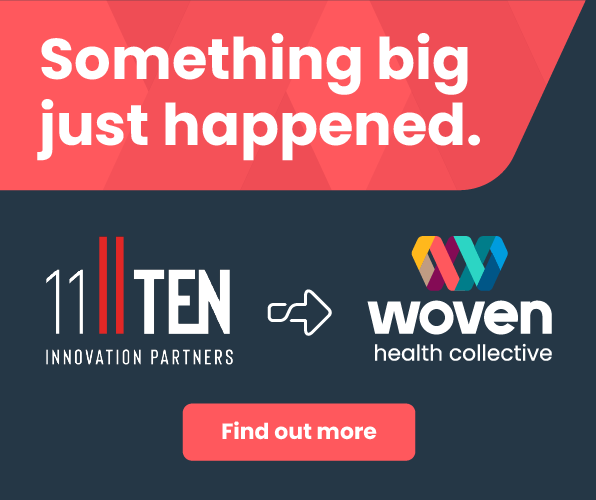At 11TEN, we have been enthusiastically following the developments and increasing usage of voice biomarkers across various disease states. We recently met with Bill Simpson and Nicola Johnson from Winterlight Labs, a company that specializes in analyzing language to assess cognitive health, to discuss what differentiates their speech analysis technology and their vision for the future of healthcare.
About the interviewees

Bill Simpson, Head of Partnerships
Bill Simpson has spent the last 15 years working in digital health as a research associate, data analyst, clinical scientist and operations lead. He obtained his PhD in Neuroscience from McMaster University where he studied blood and behaviour based biomarkers for psychiatric disease. Bill is currently the Head of Partnerships at Winterlight Labs and an Adjunct Lecturer in the Department of Psychiatry and Behavioural Neuroscience at McMaster University.

Nicola Johnson, Business Development Manager
Nicola manages Business Development activities at Winterlight Labs by combining over 8 years experience in both digital health and pharma to create successful partnerships with life sciences clients, with an emphasis on accelerating growth and delivering long-lasting value.
How did your company get started? What problem does your company solve?
Our company was founded out of a research lab at the University of Toronto in 2015. At the time, our founding team was comparing speech recordings from individuals with dementia to healthy controls to see if speech could be used as a diagnostic differentiator. Once they determined that using natural language processing tools and machine learning could be used to detect diseases such as Alzheimer’s disease with 80-85% accuracy, they decided to commercialize the technology. Today, we see many clinical trials use coarse measures, such as pen and paper assessments, that do not always detect early changes in patients or can be subjective. Our technology makes collecting measures easier by analyzing 1–2-minute voice recordings. As a result, we decrease participant burden, increase the ease of implementation in clinical research settings, and track subtle differences that may be occurring in patients.
How do you differentiate yourself from competitors? What makes your company special?
One of our greatest differentiators is that our tools account for both the acoustic and linguistic properties of speech. Many speech providers focus on the acoustic properties of speech (i.e., properties relating to the sound wave), but our research has found that the linguistic components (which include word choice, sentence structure, and the content of what’s being said) are also very important across cognitive and psychiatric conditions. Accounting for both optimizes our technology and has allowed us to strengthen our work in the Alzheimer’s space in particular. Our second key differentiator is our scientific rigor – we emphasize scientific validation and publishing results to ensure transparency and improvement of the scientific field as we commercialize. Lastly, we have operational staff that helps to implement speech in clinical research settings which really makes us an end-to-end solution unlike technologies that solely offer a downloadable app.
How have you leveraged industry connections to help your company grow?
We used our earliest collaborations to get access to existing speech data sets which we used to build out our tools and get initial validation through academic and retrospective studies. After that, we were able to evolve into prospective studies by connecting with academic groups and industry partners for further testing, subject matter expertise, and data collection. Now, we’re looking into the digital health space to see how we could partner with existing platforms for multimodal data collection. Check out our recently announced academic collaboration with Alzheimer Center Amsterdam!
What types of partnerships are you looking to pursue to grow your impact?
In the future, we’re looking to expand on the industry side to move beyond developing tools that track changes in a particular clinical study. We want to see how we can build validated speech biomarkers that can be applied to multiple clinical trials across a pharmaceutical development portfolio, enabling a future for a standard set of tools. Along with that, as we integrate into various platforms and become more of a plug-and-play speech analysis solution, we want to be able to work with other digital health companies such as telemedicine or remote patient monitoring providers. In the long-term, we see a strong opportunity to partner directly with health systems to incorporate speech biomarkers into the screening and diagnosis of neurological conditions.
What is the biggest change you envision in healthcare in the next 5 years?
Over the past few years, we’ve seen a big push towards decentralized medicine. We’re already seeing the healthcare industry evolve through trends like telemedicine and remote patient monitoring. Over the next few years, we think this movement towards decentralization will improve access to care and change the way clinical trials are conducted. Other changes we expect to see are 1) More holistic patient care that leverages multimodal approaches 2) Standardized approaches to validate and implement digital biomarkers 3) Specialization and personalization of treatments and therapies as we continue to understand the heterogeneity of individual diseases
To learn more about Winterlight Labs, please visit winterlightlabs.com





